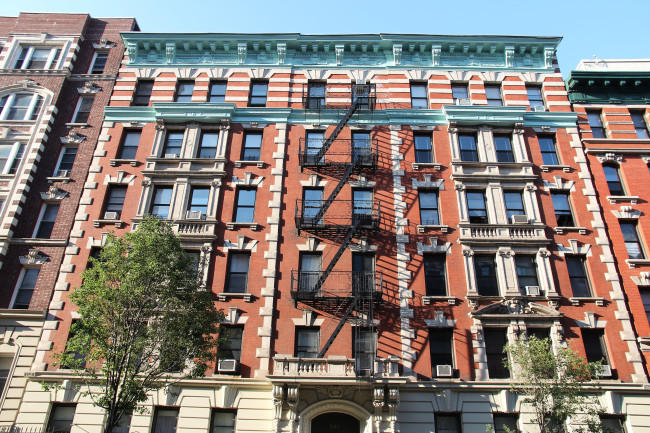Can we just get rid of the tenant blacklist altogether?
Though the term "tenant blacklist" may sound a touch dramatic, this particular aspect of the New York housing world is really just as sinister as it sounds.
It works like this: Tenant screening bureaus pull housing court records and in turn sell them to landlords who are looking to vet potential tenants and might consider a court appearance a mark against your track record. The problem is that these lists pull the name of every tenant who's been sued by their landlord in housing court, even if you were there, say, to fight a landlord who wasn't providing adequate services, rather than because you flaked on paying rent.
The end result is that anyone who's ever been brought into housing court by their landlord ends up penalized, and tenants are discouraged from classic methods of protecting their rights, such as withholding rent. While there's been some movement to improve the lists—City Council member Benjamin J. Kallos has introduced legislation to include more information about the actual cases, for instance—is there any reason we can't do away with this practice altogether?
Well, yes: Since the "blacklist" (which really consists of multiple lists pulled by different screen bureaus) is based on public data, it'd be close to impossible to truly eliminate.
"Here’s the problem: Court records are public records," says tenant's rights attorney Sam Himmelstein. "The blacklists, as much as I despise them, are really just an efficient way to report what is already public record, sort of like credit reports."
Though courts no longer sell off this information to screening agencies, the companies behind these lists now pay people to go to city court houses and collect the data themselves. And even if the lists do, indeed, start to include more information, it may not ultimately be a boon to most tenants. "If you have a record that says the tenant totally crushed their landlord in housing court to prove they were lying, or won a huge abatement on overcharge claims, that arguably could make them less appealing to a potential landlord than someone who lost their case," says Ed Josephson, director of litigation and housing at Legal Services NYC.
"Knowing the psychology of a lot of landlords, they don't really care why you were withholding rent, just that you were withholding," Himmelstein concurs. "Though reforming in this way would probably help weed out people who ended up on the list by mistake."
For this reason, says Kallos, he's also introduced legislation that would make it illegal for landlords to discriminate based on a tenant's past history in housing court. "No one should face legislation for exercising what I believe should be their human right to go to court," he tells us.
Currently, says Kallos, the legislation is under review by the city's consumer affairs and civil rights committees, and once 34 members of the city council sign on, they can get a hearing to help push the new regulations into law. "If folks are concerned about the blacklist, they should contact their local councilmember and ask them to sign onto the tenant blacklist legislation," he says.
Elsewhere, Josephson says there's legislation in the works to restrict this kind of screening in city-subsidized apartments (such as 80/20 buildings, which set aside a portion of units for affordable housing), where tenants are sometimes disqualified because of past court appearances. "That's something that will be more manageable, because you have landlords who are accepting tax breaks and are under the city's control, [so they have to comply]," says Josephson.
For the rest of us, though? Looks like the tenant blacklist is here to stay, but hopefully soon with some extra safeguards in place.
You Might Also Like



























